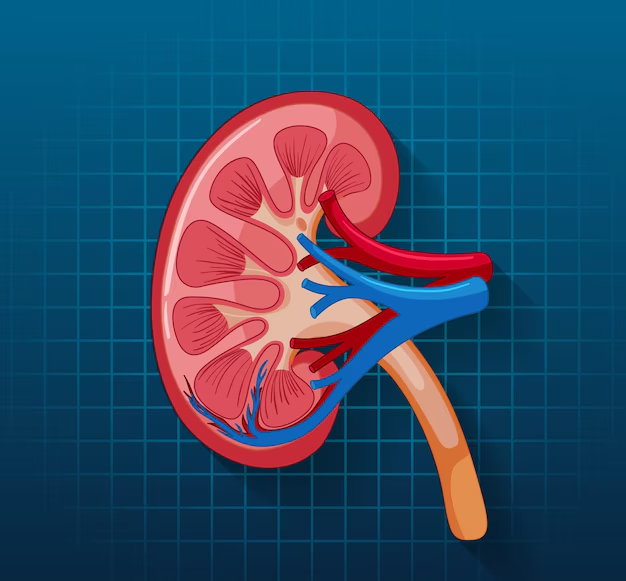Kidney Transplant
A Complete Guide to Kidney Transplant: A New Lease on Life
Kidney transplantation is a life-saving procedure for individuals suffering from end-stage renal disease (ESRD) or chronic kidney failure. This advanced medical intervention offers hope to those whose kidneys can no longer perform their essential functions of filtering toxins and maintaining the body’s chemical balance.
What is a Kidney Transplant?
A kidney transplant involves the surgical placement of a healthy kidney from a donor into a patient whose kidneys are no longer functioning effectively. This procedure restores the body’s ability to filter waste, regulate fluids, and balance electrolytes, significantly improving the patient’s quality of life.
Who Needs a Kidney Transplant?
Kidney transplantation is recommended for individuals experiencing:
- End-Stage Renal Disease (ESRD): When kidneys lose about 90% of their function.
- Chronic Kidney Disease (CKD): Progressive kidney failure that affects overall health and daily life.
- Dialysis Dependence: Long-term reliance on dialysis as a temporary measure for kidney failure.
Types of Kidney Donors
- Living Donors:
- A healthy individual donates one of their kidneys, which is enough for the donor to lead a normal life.
- Often a family member or close friend is a match, though unrelated donors can also qualify.
- Deceased Donors:
- Kidneys from individuals who have passed away are donated to those in need.
- These transplants often require waiting on a transplant list due to limited availability.
Benefits of a Kidney Transplant
- Improved Quality of Life: A successful transplant eliminates the need for dialysis, allowing patients more freedom and energy.
- Better Life Expectancy: Compared to dialysis, a transplant provides a longer and healthier life span.
- Fewer Dietary Restrictions: Patients enjoy a more flexible diet post-transplant.
- Enhanced Physical and Mental Health: With restored kidney function, patients often feel more active and positive.
Pre-Transplant Preparation
Before undergoing a kidney transplant, patients go through an extensive evaluation process, including:
- Medical Tests: Blood tests, imaging, and heart assessments to determine transplant eligibility.
- Tissue Matching: Ensuring compatibility between the donor and recipient to reduce the risk of rejection.
- Psychological Evaluation: Assessing emotional readiness and ability to adhere to post-transplant care.
The Kidney Transplant Procedure
The surgery typically takes 3-5 hours and includes:
- Donor Kidney Retrieval: The donor kidney is surgically removed, either from a living or deceased donor.
- Placement of the New Kidney: The donor kidney is placed in the lower abdomen and connected to the recipient’s blood vessels and bladder.
The recipient’s non-functioning kidneys are usually left in place unless they pose a medical risk.
Post-Transplant Care
Recovery from a kidney transplant involves lifelong care, including:
- Immunosuppressant Medications: To prevent the body from rejecting the new kidney.
- Regular Monitoring: Blood tests and check-ups to ensure the kidney is functioning properly.
- Healthy Lifestyle: Maintaining a balanced diet, staying active, and avoiding infections.
Challenges and Risks
While kidney transplants are highly successful, certain challenges remain:
- Organ Rejection: The immune system may attack the transplanted kidney, despite medication.
- Infections: Immunosuppressants increase vulnerability to infections.
- Medication Side Effects: Long-term immunosuppressant use may lead to conditions like high blood pressure or diabetes.
Advancements in Kidney Transplantation
Recent medical advancements have made kidney transplantation safer and more effective:
- ABO-Incompatible Transplants: Allow transplants between donors and recipients with different blood types.
- Minimally Invasive Techniques: Faster recovery and reduced surgical risks for living donors.
- Artificial Kidneys: Promising research in creating bioartificial kidneys for transplantation.
Living with a Transplanted Kidney
A successful transplant offers patients a chance to lead a near-normal life. With proper medical care and lifestyle adjustments, many recipients live healthy, active lives for decades after the procedure.
Conclusion
A kidney transplant is a transformative procedure that not only saves lives but also restores hope and vitality to patients with kidney failure. If you or a loved one is considering a kidney transplant, consult a qualified nephrologist to explore your options and embark on a journey toward renewed health and well-being.

